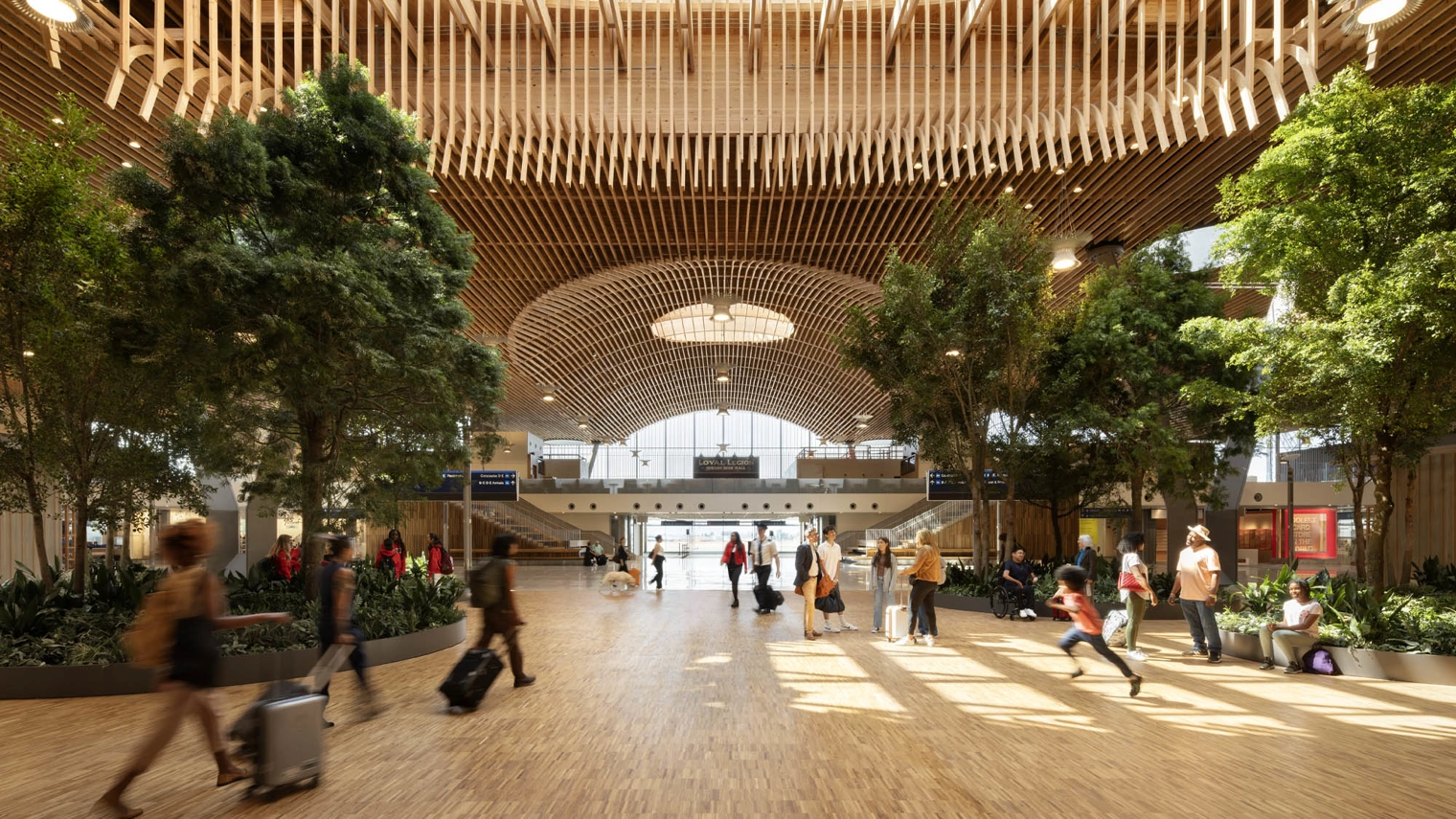Causes of Time Buffer in Construction Project Task Durations

Causes of Time Buffer in Construction Project Task Durations
Due to the inherent nature of the construction industry, all construction projects have some amount and type of uncertainty. Personnel involved with the project compensate for the uncertainty by adding buffers. This research is focused on “time buffers” added to construction task durations. We define “time buffer” as time added to task durations to compensate for uncertainty and protect against variation. Although previous research acknowledges this addition of time buffer, the root causes of buffer have not been thoroughly researched. The research objectives include determining which factors are the most prevalent and severe causes of buffer and determining opinion differences amongst various groups.
A survey was developed and then completed by 180 construction personnel across the United States. The top twelve most frequent and severe causes of buffer in task durations were identified. The factors were analysed in how they are viewed differently by foremen, superintendents, and project managers; trade to trade; general contractors to subcontractors; level of experience; and companies regularly using the Last Planner System® and those who do not.
The findings will help construction managers understand what drives the need for buffer in construction schedules and focus efforts on strategically addressing critical areas of concern or uncertainty.
Causes of Time Buffer in Construction Project Task Durations
Due to the inherent nature of the construction industry, all construction projects have some amount and type of uncertainty. Personnel involved with the project compensate for the uncertainty by adding buffers. This research is focused on “time buffers” added to construction task durations. We define “time buffer” as time added to task durations to compensate for uncertainty and protect against variation. Although previous research acknowledges this addition of time buffer, the root causes of buffer have not been thoroughly researched. The research objectives include determining which factors are the most prevalent and severe causes of buffer and determining opinion differences amongst various groups.
A survey was developed and then completed by 180 construction personnel across the United States. The top twelve most frequent and severe causes of buffer in task durations were identified. The factors were analysed in how they are viewed differently by foremen, superintendents, and project managers; trade to trade; general contractors to subcontractors; level of experience; and companies regularly using the Last Planner System® and those who do not.
The findings will help construction managers understand what drives the need for buffer in construction schedules and focus efforts on strategically addressing critical areas of concern or uncertainty.
Causes of Time Buffer in Construction Project Task Durations
Due to the inherent nature of the construction industry, all construction projects have some amount and type of uncertainty. Personnel involved with the project compensate for the uncertainty by adding buffers. This research is focused on “time buffers” added to construction task durations. We define “time buffer” as time added to task durations to compensate for uncertainty and protect against variation. Although previous research acknowledges this addition of time buffer, the root causes of buffer have not been thoroughly researched. The research objectives include determining which factors are the most prevalent and severe causes of buffer and determining opinion differences amongst various groups.
A survey was developed and then completed by 180 construction personnel across the United States. The top twelve most frequent and severe causes of buffer in task durations were identified. The factors were analysed in how they are viewed differently by foremen, superintendents, and project managers; trade to trade; general contractors to subcontractors; level of experience; and companies regularly using the Last Planner System® and those who do not.
The findings will help construction managers understand what drives the need for buffer in construction schedules and focus efforts on strategically addressing critical areas of concern or uncertainty.
Causes of Time Buffer in Construction Project Task Durations
Due to the inherent nature of the construction industry, all construction projects have some amount and type of uncertainty. Personnel involved with the project compensate for the uncertainty by adding buffers. This research is focused on “time buffers” added to construction task durations. We define “time buffer” as time added to task durations to compensate for uncertainty and protect against variation. Although previous research acknowledges this addition of time buffer, the root causes of buffer have not been thoroughly researched. The research objectives include determining which factors are the most prevalent and severe causes of buffer and determining opinion differences amongst various groups.
A survey was developed and then completed by 180 construction personnel across the United States. The top twelve most frequent and severe causes of buffer in task durations were identified. The factors were analysed in how they are viewed differently by foremen, superintendents, and project managers; trade to trade; general contractors to subcontractors; level of experience; and companies regularly using the Last Planner System® and those who do not.
The findings will help construction managers understand what drives the need for buffer in construction schedules and focus efforts on strategically addressing critical areas of concern or uncertainty.
Causes of Time Buffer in Construction Project Task Durations
Due to the inherent nature of the construction industry, all construction projects have some amount and type of uncertainty.
Causes of Time Buffer in Construction Project Task Durations
Due to the inherent nature of the construction industry, all construction projects have some amount and type of uncertainty. Personnel involved with the project compensate for the uncertainty by adding buffers. This research is focused on “time buffers” added to construction task durations. We define “time buffer” as time added to task durations to compensate for uncertainty and protect against variation. Although previous research acknowledges this addition of time buffer, the root causes of buffer have not been thoroughly researched. The research objectives include determining which factors are the most prevalent and severe causes of buffer and determining opinion differences amongst various groups.
A survey was developed and then completed by 180 construction personnel across the United States. The top twelve most frequent and severe causes of buffer in task durations were identified. The factors were analysed in how they are viewed differently by foremen, superintendents, and project managers; trade to trade; general contractors to subcontractors; level of experience; and companies regularly using the Last Planner System® and those who do not.
The findings will help construction managers understand what drives the need for buffer in construction schedules and focus efforts on strategically addressing critical areas of concern or uncertainty.
Causes of Time Buffer in Construction Project Task Durations
Due to the inherent nature of the construction industry, all construction projects have some amount and type of uncertainty.
Causes of Time Buffer in Construction Project Task Durations
Due to the inherent nature of the construction industry, all construction projects have some amount and type of uncertainty. Personnel involved with the project compensate for the uncertainty by adding buffers. This research is focused on “time buffers” added to construction task durations. We define “time buffer” as time added to task durations to compensate for uncertainty and protect against variation. Although previous research acknowledges this addition of time buffer, the root causes of buffer have not been thoroughly researched. The research objectives include determining which factors are the most prevalent and severe causes of buffer and determining opinion differences amongst various groups.
A survey was developed and then completed by 180 construction personnel across the United States. The top twelve most frequent and severe causes of buffer in task durations were identified. The factors were analysed in how they are viewed differently by foremen, superintendents, and project managers; trade to trade; general contractors to subcontractors; level of experience; and companies regularly using the Last Planner System® and those who do not.
The findings will help construction managers understand what drives the need for buffer in construction schedules and focus efforts on strategically addressing critical areas of concern or uncertainty.
Causes of Time Buffer in Construction Project Task Durations
Due to the inherent nature of the construction industry, all construction projects have some amount and type of uncertainty. Personnel involved with the project compensate for the uncertainty by adding buffers. This research is focused on “time buffers” added to construction task durations. We define “time buffer” as time added to task durations to compensate for uncertainty and protect against variation. Although previous research acknowledges this addition of time buffer, the root causes of buffer have not been thoroughly researched. The research objectives include determining which factors are the most prevalent and severe causes of buffer and determining opinion differences amongst various groups.
A survey was developed and then completed by 180 construction personnel across the United States. The top twelve most frequent and severe causes of buffer in task durations were identified. The factors were analysed in how they are viewed differently by foremen, superintendents, and project managers; trade to trade; general contractors to subcontractors; level of experience; and companies regularly using the Last Planner System® and those who do not.
The findings will help construction managers understand what drives the need for buffer in construction schedules and focus efforts on strategically addressing critical areas of concern or uncertainty.
Causes of Time Buffer in Construction Project Task Durations
Due to the inherent nature of the construction industry, all construction projects have some amount and type of uncertainty. Personnel involved with the project compensate for the uncertainty by adding buffers. This research is focused on “time buffers” added to construction task durations. We define “time buffer” as time added to task durations to compensate for uncertainty and protect against variation. Although previous research acknowledges this addition of time buffer, the root causes of buffer have not been thoroughly researched. The research objectives include determining which factors are the most prevalent and severe causes of buffer and determining opinion differences amongst various groups.
A survey was developed and then completed by 180 construction personnel across the United States. The top twelve most frequent and severe causes of buffer in task durations were identified. The factors were analysed in how they are viewed differently by foremen, superintendents, and project managers; trade to trade; general contractors to subcontractors; level of experience; and companies regularly using the Last Planner System® and those who do not.
The findings will help construction managers understand what drives the need for buffer in construction schedules and focus efforts on strategically addressing critical areas of concern or uncertainty.
Causes of Time Buffer in Construction Project Task Durations
Due to the inherent nature of the construction industry, all construction projects have some amount and type of uncertainty. Personnel involved with the project compensate for the uncertainty by adding buffers. This research is focused on “time buffers” added to construction task durations. We define “time buffer” as time added to task durations to compensate for uncertainty and protect against variation. Although previous research acknowledges this addition of time buffer, the root causes of buffer have not been thoroughly researched. The research objectives include determining which factors are the most prevalent and severe causes of buffer and determining opinion differences amongst various groups.
A survey was developed and then completed by 180 construction personnel across the United States. The top twelve most frequent and severe causes of buffer in task durations were identified. The factors were analysed in how they are viewed differently by foremen, superintendents, and project managers; trade to trade; general contractors to subcontractors; level of experience; and companies regularly using the Last Planner System® and those who do not.
The findings will help construction managers understand what drives the need for buffer in construction schedules and focus efforts on strategically addressing critical areas of concern or uncertainty.













